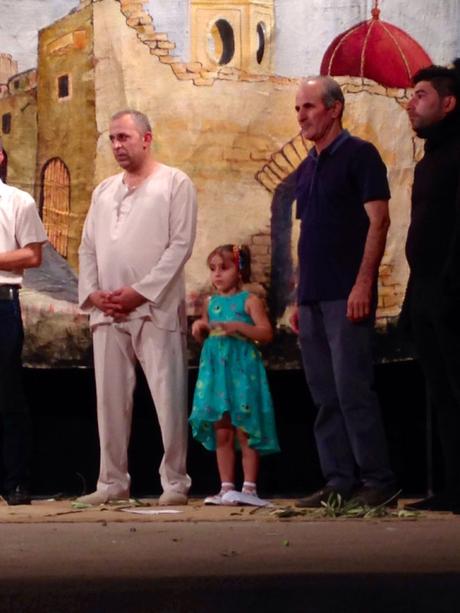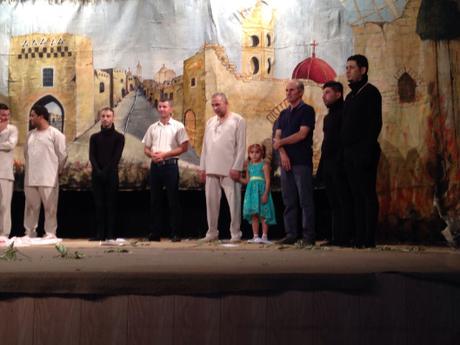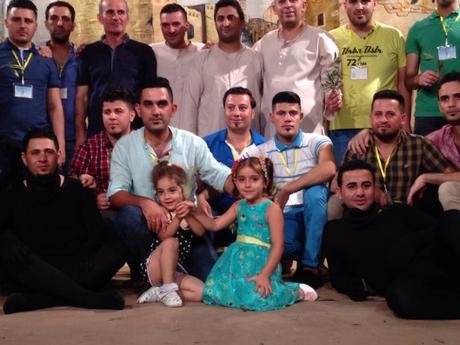


Sometimes a story emerges that captures all other stories. It becomes the iconic story, the one that explains everything. And everyone knows the story.
Everyone from Qaraqosh knows the story of Christina.
Christina was three and a half years old when she was literally snatched from her mother’s arms as they were fleeing ISIS. This was one year ago on August 6, 2014.
On the first evening I was in Iraq, we had the opportunity to see a play. The play was about the exodus of people from this city and was directed and acted by a group of actors from Qaraqosh.
At one point in the play, a little girl skips out on stage with a doll. The music is light as she skips around, safe in her world. As quickly as she comes, she vanishes, and only the doll is left on stage. The actor’s pain is acute as he shouts her name, and then asks the question: “Who will put Christina back in the arms of her mother?”
The agony of the audience is palpable. This is their city, and she has become their Christina. Who will put Christina back in the arms of her mother? Who will redeem this situation? Who will right the wrong? Who will defeat evil?
There are hundreds of questions wrapped up in the one.
It’s been a year and how much longer will the people of Qaraqosh have to wait?
The cry of the people of Qaraqosh is the cry of people through the centuries who have been victims to terrible evil. It is the cry of the exile, the cry of every mother who has lost a child.
It’s the cry of the Psalmist “How long wilt thou forget me, O LORD? for ever? how long wilt thou hide thy face from me? How long shall I take counsel in my soul, having sorrow in my heart daily? how long shall mine enemy be exalted over me? Consider and hear me, O LORD my God: lighten mine eyes, lest I sleep the sleep of death; Lest mine enemy say, I have prevailed against him; and those that trouble me rejoice when I am moved.” Psalm 13
But the play didn’t end on those words. Like the Psalmist, who says “But I have trusted in thy mercy; my heart shall rejoice in thy salvation,” the play ended with olive branches, a symbol of peace. The play ended with hope for return. The play ended with resurrection
The play represents much of what I saw during my short time, and I am challenged daily by the hope I saw in those displaced in Iraq.
For even as they wonder who will put Christina back in the arms of her mother, they continue living day by day, in hope of return.

